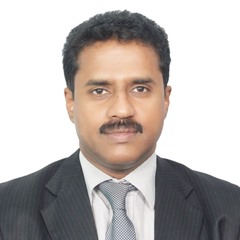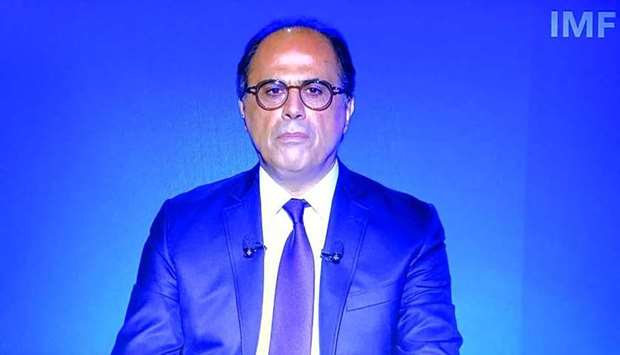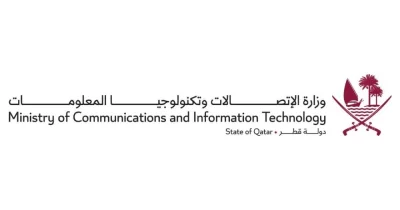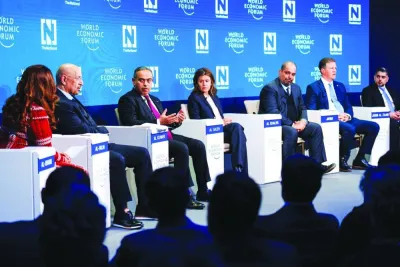Early vaccine rollout and the improvement in the relationship between GCC countries following the Al Ulha Accord will help Qatar economy recover, said Jihad Azour, director of the Middle East and Central Asia Department at the IMF.
“These will create better conditions, help increase the level of exchange of goods, services and also people and provide an additional source of visitors- both for tourism as well as for the FIFA World Cup 2022 from the region,” Azour said in reply to a question by Gulf Times at an IMF-hosted virtual media event Sunday.
He said, “Qatar like other GCC countries was affected last year by the pandemic and the sudden drop in oil prices as well as also in demand.
“Qatari Government and the authorities here also took certain number of important measures, to extend additional social support, increase the fiscal stimulus as well as also an important package of support to the private sector through the banks. These include additional liquidity and additional financial schemes that had cushioned the impact of the shock on the economy.”
Azour said, “In addition to the recovery in the non-oil sector, the oil sector with the development of new oil and gas fields will also contribute to the improvement in economic outcome for 2021 and also for the medium term.”
Addressing the media event, Azour said the economies of "early inoculating" countries in the Middle East and North Africa will bounce back to pre-pandemic levels next year, after raising IMF’s 2021 MENA growth forecast.
The region, which includes the Arab countries and Iran, saw its real GDP growth shrink by 3.4% in 2020 due to lower oil prices and sweeping lockdowns to prevent the spread of the coronavirus.
But with rapid vaccination campaigns underway particularly in the GCC countries, the International Monetary Fund earlier this week predicted that GDP growth would rise to 4% this year, an upgrade of 0.9% from the last projection.
"This recovery is moving on a diverging path with the vaccine rollout and the policy response playing an important role in the quality and the depth of the recovery," Jihad Azour, director of the Middle East and Central Asia Department at the IMF, told AFP.
"This multi-speed recovery is on different levels, one between those who are fast in inoculating the vaccine and who will rapidly reach a level of full coverage of their population or 75% or so, and those who will be slow in vaccinating, and those who will be late," he added.
In its latest Regional Economic Outlook Update report released Sunday, the IMF said it expects early inoculators' GDP to reach 2019 levels in 2022.
By contrast, slow and late inoculators will happen recover sometime between 2022 and 2023, it said.
Many countries in the region, especially the wealthy GCC region, have launched vast vaccination campaigns and are administrating some of the fastest per capita deliveries in the world.
By contrast, access to adequate vaccine supplies remains a challenge for many others due to worldwide shortages, internal conflicts or political troubles, and weak finances.
After a 4.8% contraction in 2020, oil-rich GCC countries are now expected to grow by 2.7% this year, an upgrade of 0.2% from October.
He said, “Qatar like other GCC countries was affected last year by the pandemic and the sudden drop in oil prices as well as also in demand.
“Qatari Government and the authorities here also took certain number of important measures, to extend additional social support, increase the fiscal stimulus as well as also an important package of support to the private sector through the banks. These include additional liquidity and additional financial schemes that had cushioned the impact of the shock on the economy.”
Azour said, “In addition to the recovery in the non-oil sector, the oil sector with the development of new oil and gas fields will also contribute to the improvement in economic outcome for 2021 and also for the medium term.”
Addressing the media event, Azour said the economies of "early inoculating" countries in the Middle East and North Africa will bounce back to pre-pandemic levels next year, after raising IMF’s 2021 MENA growth forecast.
The region, which includes the Arab countries and Iran, saw its real GDP growth shrink by 3.4% in 2020 due to lower oil prices and sweeping lockdowns to prevent the spread of the coronavirus.
But with rapid vaccination campaigns underway particularly in the GCC countries, the International Monetary Fund earlier this week predicted that GDP growth would rise to 4% this year, an upgrade of 0.9% from the last projection.
"This recovery is moving on a diverging path with the vaccine rollout and the policy response playing an important role in the quality and the depth of the recovery," Jihad Azour, director of the Middle East and Central Asia Department at the IMF, told AFP.
"This multi-speed recovery is on different levels, one between those who are fast in inoculating the vaccine and who will rapidly reach a level of full coverage of their population or 75% or so, and those who will be slow in vaccinating, and those who will be late," he added.
In its latest Regional Economic Outlook Update report released Sunday, the IMF said it expects early inoculators' GDP to reach 2019 levels in 2022.
By contrast, slow and late inoculators will happen recover sometime between 2022 and 2023, it said.
Many countries in the region, especially the wealthy GCC region, have launched vast vaccination campaigns and are administrating some of the fastest per capita deliveries in the world.
By contrast, access to adequate vaccine supplies remains a challenge for many others due to worldwide shortages, internal conflicts or political troubles, and weak finances.
After a 4.8% contraction in 2020, oil-rich GCC countries are now expected to grow by 2.7% this year, an upgrade of 0.2% from October.




